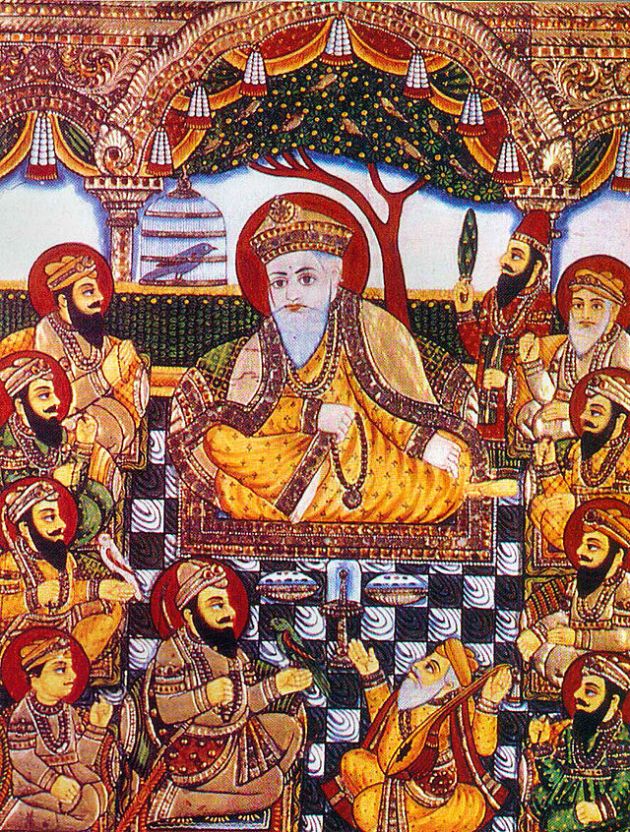Recently, Punjab Assembly approved the resolution to make Guru Nanak’s birthday a public holiday. The sensationalizing brouhaha over inconsequential media stories has, as always, drowned out the importance of this headway.
As much as many people praised this approval as a welcome step forward, some naysayers continue to demean and deride it, remarking that this nation needs to invent new reasons to remain unproductive. This approach confounds two unrelated issues, and fails to appreciate the importance of this step for Pakistan.
The approval is of great significance for what it stands for.
This resolution, demanding Guru Nanak’s birthday to be declared as a public holiday, was tabled by Sardar Ramesh Singh, the first Sikh member of Punjab Assembly. It highlights the importance and effectiveness of the presence and representation of the non-Muslim minorities in the legislative body. Empower them and they will take care of themselves. They can chalk out their demands and advance them on a formal platform; this results in a positive atmosphere of inclusion where they can feel a sense of belonging, of being heard and respected.
Let’s recall that the constitutional structure of this country stands upon the Objectives Resolution which was passed against the will of all non-Muslim representatives in the Parliament at that time.
Sris Chandra Chattopadhya, speaking to the Constituent Assembly in opposition to the Objectives Resolution of 1949, clearly articulated his disappointment. He maintained that this Resolution inevitably gave a superior status to the Muslims by establishing Islam as the state religion. He explicitly stated that this Resolution was going to create a Herrenvolk, a master race who deems itself superior to all other groups. He said: “… I am anxious to see that (Pakistan’s) constitution is framed in such a way which may suit the Muslims as well as the non-Muslims. I have gone carefully through this Resolution and… I cannot persuade myself to accept this Resolution and my instruction to my party would be to oppose this Resolution.”
However, despite the categorical rejection by all non-Muslim legislators, this resolution was conveniently passed and appended to the constitution. It takes little thought to imagine that such provisions in the constitution would certainly have made the non-Muslims feel alienated and unwelcome citizens, right from the beginning.
Herrenvolk was indeed created and non-Muslims have suffered way too much at its hands.
But it’s never too late to move towards making amends. A good legislation might be a harbinger of a positive change in the mindsets.
This approval for a public holiday to honour Sikhism has come right after the Sikhs protested against desecration of their holy books outside the Parliament. It’s of a telling symbolic value. This reflects that the state is now willing, in one way or another, to make amends for some of the past transgressions. Cynics may claim that public holidays amount to nothing but lip service. This is not true and here’s why:
Prominent political scientist Alfred Stepan writes that whereas European democracies maintain a “highly separatist, somewhat a religion-unfriendly pattern of secularism”, highly ranked emerging Muslim democracies like Tunisia, Senegal and Indonesia are positively developing, fit for their own context, along the lines of “twin tolerations”. Twin tolerations entail a civil state, instead of a religious one, where religion respects democratic prerogatives, and the state respects some prerogatives of religion and recognizes its legitimate role in the public sphere. Stepan maintains that three civil states (Indonesia, India and Senegal), in the interest of encouraging mutual respect between religion and democracy, carry out certain public policies and practices. One of them is that these three countries actively contribute to the celebration of more religions than Western Europe does. Denmark, France, Germany, the Netherlands, Sweden, and Switzerland decree a combined total of 76 paid religious holidays. All holidays come from the Christian calendar and there’s none for any minority religion. By contrast, Indonesia offers six Islamic holidays and seven additional holidays to cover the sacred days of Buddhism, Christianity, Confucianism and Hinduism. Senegal decrees seven Islamic holidays, and six for Roman Catholics, who are less than one-tenth of the total population. Senegal also subsidizes Catholics citizens’ pilgrimage to Rome. India offers five Hindu holidays and ten to accommodate its minority religions. Stepan calls this the “Respect All, Positive Cooperation, Principled Distance” Model. Institutionalizing respect for all religions is an ideal measure for traditional, heterogeneous societies.
Declaring public holiday to honour a minority religion is not a pretext to shirk work. It is a monumental gesture: to value all religions equally, to celebrate the diversity by not only allowing or tolerating, rather respecting the beliefs and practices of all religions.
It’s a welcome step; we must appreciate positive trends and hope for them to continue, instead of constant grumbling about everything that is wrong.
Don’t you ever wonder would 25th December still be a holiday if it wasn’t for the Quaid’s birthday?
